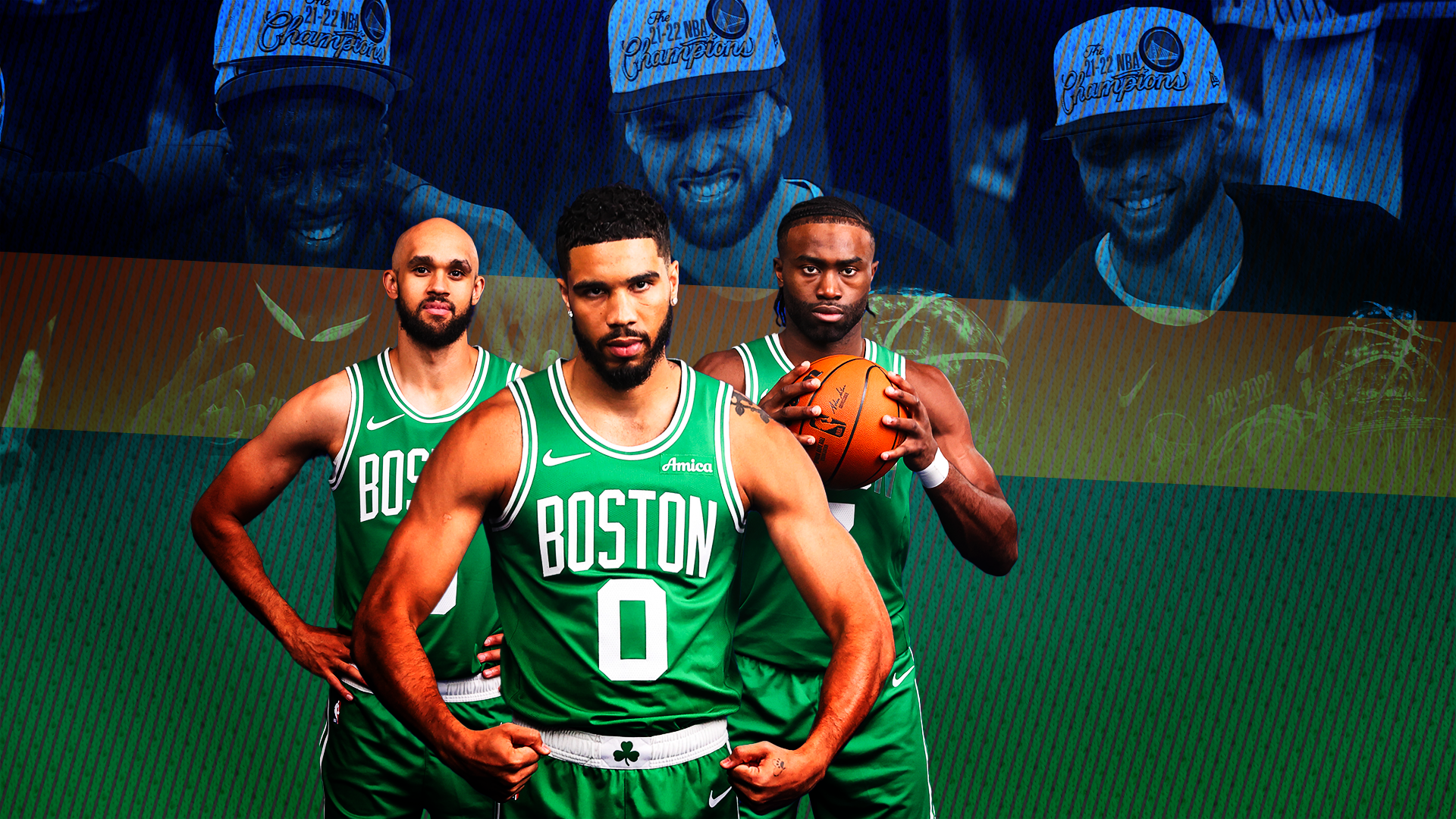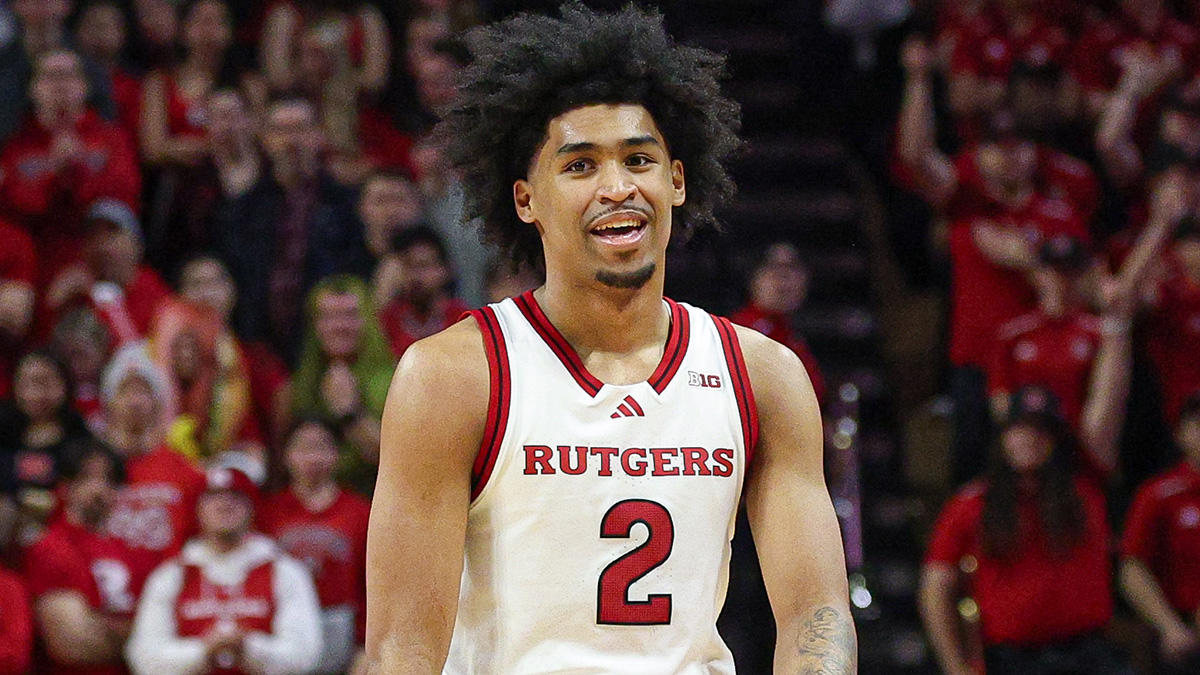BOSTON — Members of Team USA were making the seemingly interminable 14-hour flight back from the FIBA World Cup in China last month when emotions overcame Marcus Smart.
It was September 16, the one year anniversary of losing his beloved mother, Camellia, to cancer at age 63, and everything Smart had bottled up for much of the past year seemed to be spilling out as the planed touched down on U.S. soil.
"I’m in a better space, mentally, now. But I’m not going to lie, when it happened, when that year came around on the 16th, and for a few days after, I was really down and really depressed,” Smart told NBC Sports Boston after the Celtics’ first training camp practice Tuesday at the Auerbach Center. "I had to talk to somebody because I didn’t know what was going on. I was snapping at my friends and family members and just myself, trying to figure out how to deal with it and what was going on.
“Because, at the time, when [my mother passed], I didn’t get to really grieve, I had to come right back [to Boston for training camp]. We were flying home on the 16th and I just kinda broke down once we landed. It was just tough.”
Smart stressed again that he’s in a better place now. He disclosed his struggle while detailing why he reached out to Celtics rookie Tremont Waters in July after the unexpected passing of Waters’ father.
Waters marveled at Monday’s Media Day how Smart, who the rookie hadn’t even met in person at that point, phoned him at summer league to offer words of encouragement. After Smart lost both his mother and brother to cancer, he didn’t hesitate to reach out to Waters hoping to simply lend support to a new teammate.
Boston Celtics
Find the latest Boston Celtics news, highlights, analysis and more with NBC Sports Boston.
“Obviously, different reasons, but I lost my mom and my brother, so I kinda know that feeling,” said Smart. “In his mind, he’s thinking what is he going to do, what could he have done. I understood that because I’ve been through it. I just wanted to give him a little call, let him know that there’s people out here, everybody is here [for him], it’s more than just you.
"Especially going through this type of thing. If you need help, maybe I can give you a little advice on how to deal with it. Obviously, people deal with trauma and things like that their own way but the things that helped me, hopefully can help him.”
At the end of the 2018-19 season, Smart staunchly defended teammate Kyrie Irving while noting how Irving had been there for Smart after his mother’s death, then hinted that we didn’t know the full story about Irving’s withdrawal from the Celtics last season.
During his Brooklyn introduction last week, Irving suggested that his grandfather’s death last October left him resentful of basketball, hindered his ability to give his teammates everything he could last season, and ultimately forced Irving to reprioritize his future.
Did Smart know about what Irving was going through?
"I did. When he found out about his grandfather, I talked to him about that,” said Smart. "We had numerous conversations about losing his mom at an early age and things like that. It hurt him. But, of course, you have to be a professional and come out here and put on a face that, at that moment, he didn’t want to put on but he has to do it.
"And it’s tough, it’s hard. Especially when adversity is hitting you and it’s just like, in the moment, you want to be by yourself and you don’t know what to do. It’s like you’re stuck and you don’t know how to get out.”
Smart found solace in basketball after losing his mother. The gym became a needed distraction. Waters did the same, initially staying with the Celtics' summer league squad in Las Vegas and playing a game in the immediate aftermath of his father’s death back in Connecticut.
Smart is aware that many are skeptical of Irving and how his grandfather's loss impacted the entirety of the season. We asked if Smart’s own experience with the grieving process suggested that it could linger for a player.
“One hundred percent,” said Smart. "Like I told Tre, there’s going to be days where, for no apparent reason, you’re just in a bad mood. You might not break down crying, you’re just going to wonder what’s going on. Only time heals all and it’s going to take time for something like this, especially somebody so close to you. So I can definitely see it lingering because it lingered for me a little bit last year as well.
"For me, it was just different how we dealt with it.”
Smart is embracing the return of basketball. He glowed about the energy and excitement that permeated the Auerbach Center as the Celtics got to work with their first training camp practice on Tuesday morning.
He marvels that he’s already in Year 6 of his NBA career and Smart remains the longest-tenured Celtics player by a wide margin (2016 draftee Jaylen Brown is closest). Smart is still only 25 but noted at Monday’s Media Day how little bumps and bruises don’t go away quite as fast as they once did. On Tuesday, he admitted that the hand he dinged up at the World Cup is still sore and he sought treatment after Tuesday's workout. Ever the optimist, Smart smiled and noted, “The hand is a little banged up but everything else is fine.”
Smart is eager to lead. He’s pretty sure he’ll have to be even more vocal this year with a young roster, but he wants the youngest players to make mistakes and learn on their own, too. Said Smart: “There’s going to be nights where we can’t hear each other, and you’ve got to be able to know what you’re doing and understand it.”
But if these young guys run into any troubles off the court, Smart will make sure they hear his voice. He understands the value of a sympathetic ear.
"If you’ve gone through anything, just talking about it, it’s the best way to go,” said Smart. "At the moment it might not seem like it, but down the road it will definitely help.”
Click here to download the new MyTeams App by NBC Sports! Receive comprehensive coverage of your teams and stream the Celtics easily on your device.


